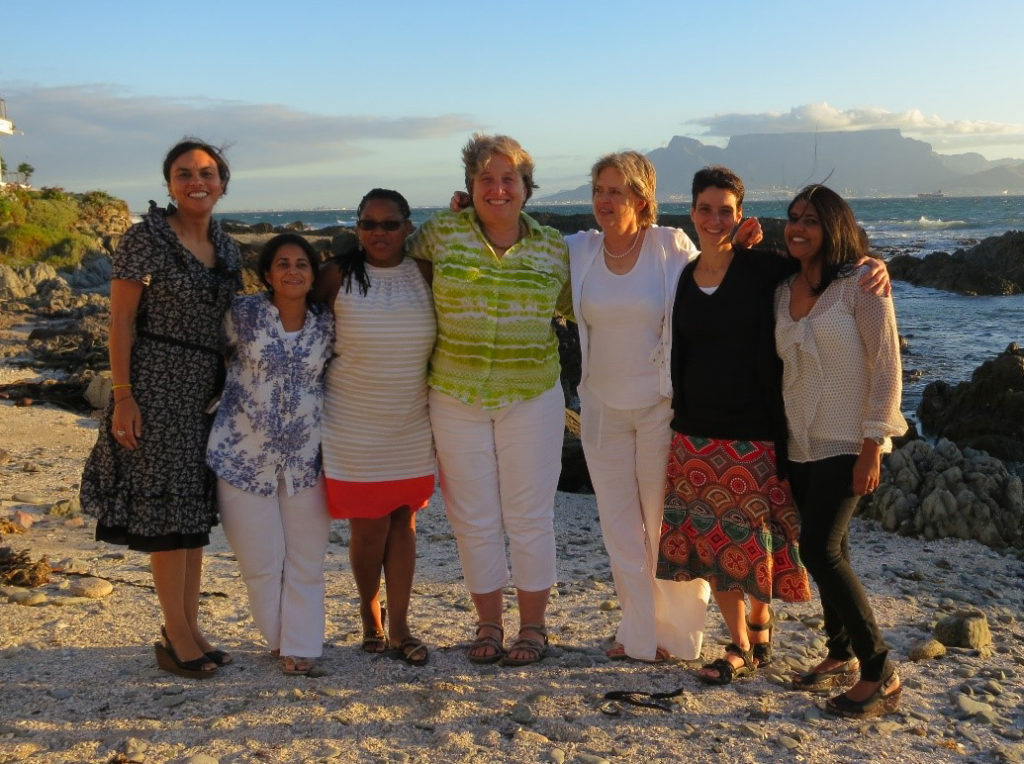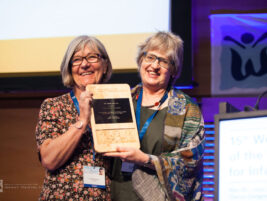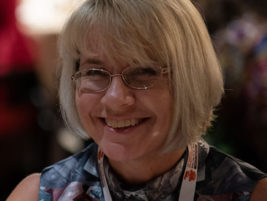It was with great sadness that I heard of the passing of Nancy Suchman on the 25th December 2020 after a 2 year brave battle with cancer. Nancy was an esteemed colleague and cherished mentor and friend to me and to the infant mental health team in Cape Town, South Africa. Nancy was an Associate Professor in the Department of Psychiatry and the Child Study Center at the Yale School of Medicine, USA, where she was involved in research since 1993.
My association with Nancy goes back several years. In 2012 I came across her Chapter “The Mothers and Toddlers Program: An Attachment-Based Intervention for Mothers in Substance Abuse Treatment” which she had co-authored with Cindy DeCoste and Linda Mayes[1]. What struck me so forcibly in that Chapter was the way in which she and her colleagues combined rigorous research methodology with sensitive, attuned clinical intervention, the essence of which was “…the therapist accepting and exploring the mother’s representations and experiences as they are and noting them as they change so that the mother can also recognize how her thinking affects her parenting.” I had not come across such a respectful synthesis of approaches – that is, the consideration for the clinical as well as the research component. It was this that made me write to her and I was surprised and very pleased that she replied almost immediately and agreed to visit us in Cape Town.
Her first visit occurred in May 2013 during which she introduced us to the principles and research outcomes of the intervention “Mothering from the Inside Out”. We could soon see that the intervention fitted in well with our clinical approach and that it was applicable to our patient population. Two more visits followed – in 2015, with Cindy DeCoste, and one in 2017. Our collaboration culminated in the publication of the paper “Mothering from the Inside Out: Adapting an evidence-based intervention for high-risk mothers in the Western Cape of South Africa “[2] and its presentation at the WAIMH Congress in Rome in 2018.
Besides her formidable knowledge of statistics and research methodology, she had a profound understanding of psychodynamic psychotherapy. This sensitised her to the challenges of everyday issues within the clinical setting; her understanding of the reality of work on-the-ground made her a unique researcher as she was able to hold both poles: the clean lines of a research protocol and the turbulence that work with troubled parents invariably entails.
Nancy was a living example of Community-Based Participatory Research. Not only were the contributions and ideas coming from the South African partners valued and incorporated into the intervention, but the well-being of the patient participants was regarded as being of prime importance and as coming first at all times. It was this profoundly ethical attitude towards the patient within the framework of a rigorous research methodology that was unique and compatible with general good clinical, psychodynamically informed practice.
The respectful and open minded approach towards a context so vastly different to that of the US has contributed to the ongoing engagement and enthusiasm of local clinicians, enabling them to become upskilled through the various workshops and training programmes that were presented by Dr Suchman and her colleagues. The research focus within the daily work setting has added an invaluable dimension to the repertoire of local clinicians and has made research possible in a country where resources are constrained and the need for mental health interventions enormous. Without Nancy Suchman’s quiet and dependable leadership this would not have been possible.
In addition to the collaborative research, Nancy actively participated in the Master’s Programme in Infant Mental Health at Stellenbosch University, and was a supervisor and examiner for two completed PhDs at this University.
She shall be sorely missed. The IMH Team in Cape Town extends heartfelt condolences to Nancy’s colleagues, friends and family.
Astrid Berg, Cape Town, 29th December 2020
[1] Handbook of Infant Mental Health, Third Edition, p. 493
[2] Development and Psychopathology (2019), 1–18








